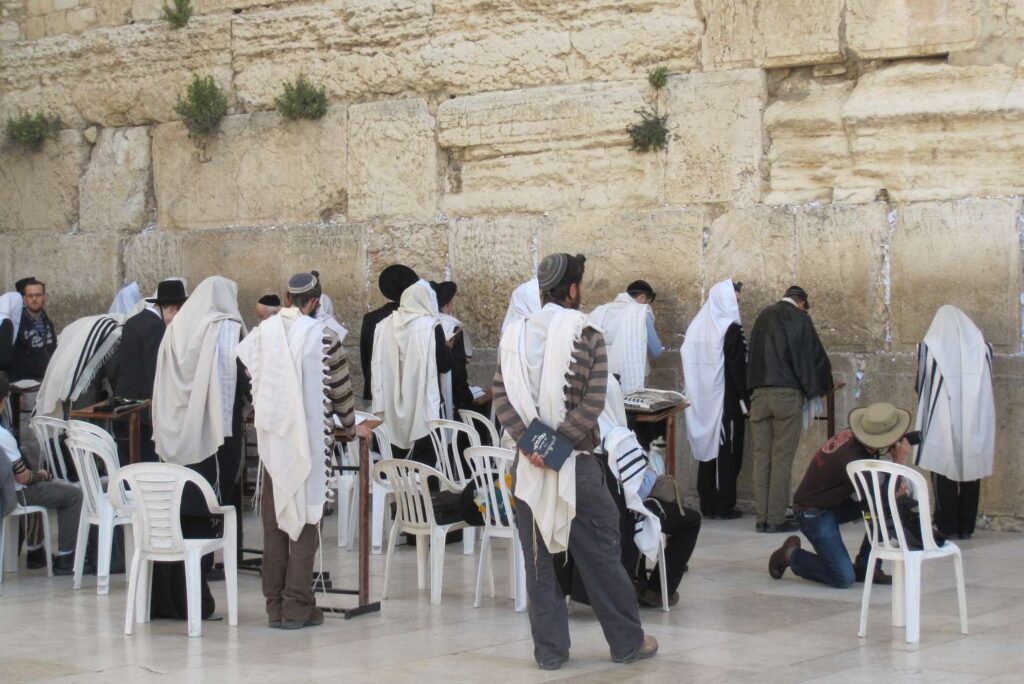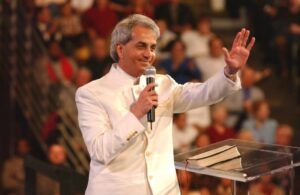The sound of the shofar is in the air. The Hebrew month of Elul has come, preparing us for Rosh Hashanah. But this Rosh Hashanah, in the year 5775, will be different. This year is a sabbatical year—a Shemitah year.
According to Jewish law, every seventh year the land in Israel must remain fallow. Not surprisingly, this law has inspired much debate on just how it should be implemented, but I don’t wish to get caught up in the legal intricacies here. Instead, I want to delve into the tradition’s deeper, internal meaning, as it resonates powerfully in contemporary times—especially when we consider the worldwide threat of terrorism.
The key to understanding Shemitah is to reflect upon Shabbat—the Sabbath. For author and translator Dayan Dr. Isidor Grunfeld, the essence of Shabbat is to remind us of God’s mastery over the world. For instance, in our workaday world we engage in creative work; ideally that work is effective, and successful. But the concern is that, if successful, we may come to believe our achievements derive from our might and our power. We can forget that our creative energies and successes in fact come from God. And so, for one day during the week, we withdraw from productive creativity to demonstrate that it is not we who are masters of the world, but God.
So, too, it is for the Sabbatical year, Shemitah. For six years, we are mandated to work the land. Here again, we could become so successful in our endeavors that we forget to credit God’s hand in the result. And so, for one year, the land remains fallow: a reminder that the earth belongs to God. In the words of the Torah: the seventh year will be a “Sabbath to the Lord.”
The blowing of the shofar is a declaration that God is Master. For many, that sound is nothing less than the strains of a holy trumpet celebrating the coronation of God, the Ruler of rulers.
In mystical literature, the shofar is a romantic flute. It’s the musical instrument used by the shepherd or farmer in the midst of nature, singing and playing beautiful music to God, reveling in the marvels of the world. This speaks to a second approach to Shabbat and Shemitah. Philosopher and psychologist Erich Fromm considered Shabbat a day to take cognizance of—to celebrate—the ecological beauty of the world. “Menuchah,” argued Fromm, is the state of rest between human beings and nature. Work, or “melachah,” is any disturbance in this equilibrium. For this reason, on Shabbat we neither pluck an apple from a tree nor cut a blade of grass. In this, one day in seven, we promote perfect harmony with nature.
So, too, it is for Shemitah. Like Shabbat, it teaches an important ecological lesson. For six years we plow, sow, harvest, and cultivate the land. Just as we can tire from our labors, the land too can grow weary. Thus, for the Sabbatical year, we step back, leave the land untouched, allow it to reinvigorate, and replenish its energy. As the Torah says of Shemitah: it will be a Sabbath year “of solemn rest for the land.”
A third approach to the Shabbat-Shemitah connection sees Shabbat as a day of self-reflection. In its first mention of Shabbat, the Torah states God finished His work on the seventh day. But, if God finished His work on the seventh day, He worked on Shabbat. Indeed He did, says the great commentator Rashi. In six days, or stages, God created the world. On Shabbat, God was creatively involved in assessing, in contemplating, its purpose. In the spirit of imitatio Dei, we do the same. As Rabbi Norman Lamm has written, for six days of the week we engage in the creation of the outer world; on Shabbat we engage in the creation of the inner world, seeking the inner meaning and purpose to life itself.
Abraham Joshua Heschel explains it another way. For six days, we focus on having more; on Shabbat, we focus on being more—we remember that “to have more is not to be more.” Or perhaps, for six days we are involved in the world of existence, but on Shabbat we are involved in the world of essence—of being at peace, real inner peace.
So too, for Shemitah. For six years we work the land: we engage in the outer world. But in the seventh year we too need a sabbatical, to contemplate the deeper questions of meaning and purpose. As the Torah states: and the Sabbatical year will be “for you/for your sake.”
This search for inner meaning can also resonate with the sound of the shofar. The voice of the shofar does not emanate from the larynx—it emanates from the inner breath, the inner soul, that part of us that seeks the deeper purpose of life.
Rabbi Avi Weiss is senior rabbi at the Hebrew Institute of Riverdale, Bronx, New York, and founder of Yeshivat Chovevei Torah Rabbinical School and Yeshivat Maharat.
For the original article, visit jns.org.
See an error in this article?
To contact us or to submit an article
























